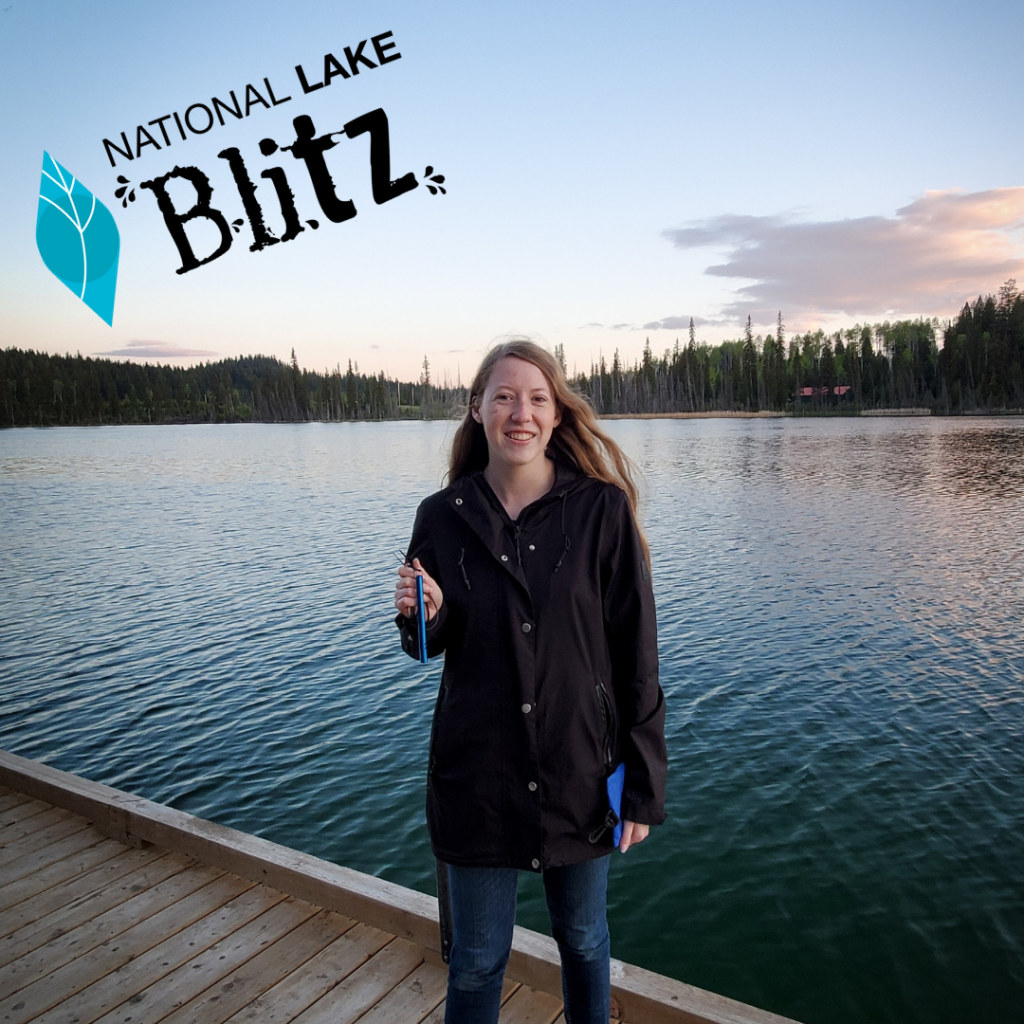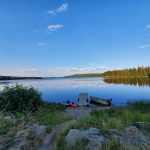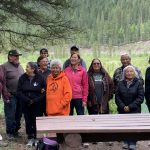Lake Blitz Volunteer Spotlight: Megan Blackmore
 The Lake Blitz Volunteer Spotlight series gives us the opportunity to show appreciation for our remarkable Lake Blitz volunteers. From B.C. to Nova Scotia, 340 volunteers are helping create a snapshot of lake health from May to September 2022 by collecting temperature readings and taking photos of the lake(s) they’ve decided to monitor for climate impacts. Megan Blackmore, who volunteered to monitor 3 lakes for the Lake Blitz, is kicking off this new series.
The Lake Blitz Volunteer Spotlight series gives us the opportunity to show appreciation for our remarkable Lake Blitz volunteers. From B.C. to Nova Scotia, 340 volunteers are helping create a snapshot of lake health from May to September 2022 by collecting temperature readings and taking photos of the lake(s) they’ve decided to monitor for climate impacts. Megan Blackmore, who volunteered to monitor 3 lakes for the Lake Blitz, is kicking off this new series.
Q – What lake(s) are you monitoring?
A – I’m monitoring Paul Lake, Stake Lake and Lac Le Jeune in British Columbia.
Q – What is your background?
A – My background is in horticulture with a more recent focus on invasive and native plant species in BC. I currently work for the Invasive Species Council of BC as a Learning Coordinator.
Q – Why did you have an interest in lake monitoring?
A – I grew up at Paul Lake, B.C., so lakes and the nature around them were a large part of my childhood. The beauty and diversity of the nature I spent so much time in is what grew my passion for the natural world to what it is today. When opportunities like the National Lake Blitz come up, where I have the opportunity to contribute meaningful data and observations to help protect the health of our environment, I’m eager to get involved.
Q – What have you learned about your lake(s) so far?
A – I’ve learned that the temptation to jump into the lake water is very strong on freezing-cold, early mornings when you discover that the lake water is surprisingly warmer than the air. (It was 8c while the air was -1c!)
Q – What concerns you most about the future health of freshwater lakes?
A – I’m concerned about the impacts of invasive species on the health of our freshwater lakes. Many people are aware of the dangers of pollution and development around our lakes, but not nearly as many know about invasive species and what impacts they can have. It’s an issue that can so easily continue to grow simply because people just aren’t aware of it.
Q – What is one thing everyone can do to protect their local lakes?
A – Something everyone can do is be conscious of what they’re bringing to and from the lakes they visit. Make sure your gear, vehicles, boats etc. are clean, drained and dried so you’re not risking introducing any invasive species or other pollutants. When you leave the lake make sure you take everything you brought with you, leave no trace! We should always strive to leave our lakes in the same beautiful way as we found them!
Q – Why do you think water monitoring is important?
A – It’s important because it’s a good way to track what’s happening in our lakes overtime and allows us to detect any issues there may be sooner. Collecting this data helps to put together a picture of how our lakes naturally change over the seasons and overtime we’ll have a really good understanding of what’s normal and what isn’t.
Q – Do you have a personal connection to your lake(s)?
A – Having grown up at Paul Lake, I have a very strong connection and love for the area. As for Stake Lake and Lac Le Jeune, they are lakes I have more recently become familiar with. Their trails and surrounding nature are a wonderful escape from everyday life and I take every opportunity I can to visit and explore them.





